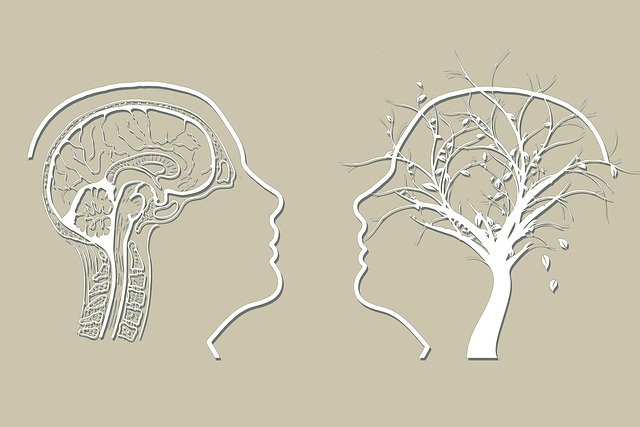Mental wellness self-assessment tools, enriched by Colorado Springs Adjustment Disorder Therapy principles, empower individuals with self-awareness and coping strategies for stress and anxiety. These assessments uncover hidden adjustment disorders, fostering personal growth and serving as critical risk assessment aids for mental health professionals to prevent burnout. In Colorado Springs, where life transitions and traumatic events are common, these tools integrate into therapy practices to provide tailored treatment plans, enhance care quality, and improve client outcomes.
Mental wellness self-assessment tools play a pivotal role in understanding and managing mental health. This article explores their development, focusing on the unique needs of Colorado Springs residents. We delve into the significance of self-assessments for identifying and addressing common issues like adjustment disorders, a prevalent concern in the community. By examining existing tools and best practices, we highlight effective strategies for integrating self-assessment into therapy practice in Colorado Springs, fostering better mental health outcomes.
- Understanding Mental Wellness Self-Assessment Tools
- Identifying the Need for Colorado Springs Adjustment Disorder Therapy
- Developing Effective Assessment Tools
- Integrating Self-Assessment into Therapy Practice in Colorado Springs
Understanding Mental Wellness Self-Assessment Tools

Mental wellness self-assessment tools play a pivotal role in individual’s journey towards understanding and managing their mental health. These tools are designed to provide individuals with a means to evaluate their emotional, psychological, and behavioral well-being, offering valuable insights into potential areas of concern. By incorporating elements of Colorado Springs Adjustment Disorder Therapy, these assessments can help identify specific challenges, such as adjustment disorders, that might otherwise go unnoticed. They empower individuals to take proactive steps towards enhancing their mental wellness by fostering self-awareness and encouraging personal growth.
Resilience building is a key aspect often integrated into these tools, equipping users with strategies to cope with stress, anxiety, and other mental health issues. Moreover, they serve as essential resources for risk assessment in mental health professionals, enabling them to identify potential risks within their practice and implement effective prevention measures, including burnout prevention. This holistic approach ensures that both individuals seeking therapy and practitioners providing it can navigate the complexities of mental wellness with enhanced awareness and preparedness.
Identifying the Need for Colorado Springs Adjustment Disorder Therapy

In Colorado Springs, the need for Adjustment Disorder therapy is increasingly recognized as a vital aspect of mental wellness. This therapy caters to individuals grappling with emotional and behavioral challenges resulting from significant life changes or traumatic events. Many residents find themselves in situations that demand adjustment—be it relocating, experiencing relationship transitions, or facing job-related pressures—but lack the necessary tools to navigate these adjustments effectively. The result can be prolonged stress, anxiety, and even depression, which, if left unaddressed, can significantly impact daily functioning.
Colorado Springs Adjustment Disorder Therapy offers a structured approach to help individuals build inner strength and develop empathy-based strategies for coping with life’s challenges. By focusing on the connection between thoughts, feelings, and behaviors, therapists empower clients to understand and manage their emotional responses more effectively. This proactive approach not only aids in preventing depression but also fosters resilience, enabling individuals to adapt and thrive in the face of adversity.
Developing Effective Assessment Tools

Developing effective mental wellness self-assessment tools is a multifaceted process that requires careful consideration and expertise. These assessments play a pivotal role in identifying emotional and psychological challenges, offering crucial insights for personalized therapy and treatment plans, especially for conditions like Adjustment Disorder, prevalent in Colorado Springs communities.
The design of these tools should focus on promoting public awareness campaigns that encourage open dialogue about mental health. By integrating user-friendly interfaces and evidence-based communication strategies, self-assessments can enhance emotional regulation skills. This is particularly beneficial for individuals seeking support outside traditional therapy settings. Regular updates and a diverse range of resources are essential to keep the tools relevant, ensuring they remain effective in addressing evolving mental wellness concerns.
Integrating Self-Assessment into Therapy Practice in Colorado Springs

In Colorado Springs, integrating self-assessment tools into therapy practice has become an essential component of mental wellness care. These assessments provide valuable insights for healthcare providers, enabling them to tailor treatment plans to address specific needs. By incorporating techniques that promote Anxiety Relief, therapists can create a more personalized and effective therapeutic environment. For instance, the development of risk management planning strategies, which fall under Risk Management Planning for Mental Health Professionals, allows practitioners to proactively identify and mitigate potential risks associated with various mental health conditions, including Adjustment Disorder commonly seen in Colorado Springs adjustment disorder therapy settings.
The integration of self-assessment goes beyond individual treatment; it fosters a holistic approach to mental wellness in the community. Healthcare provider cultural competency training plays a pivotal role in this process, ensuring that therapists are equipped to serve diverse populations effectively. This inclusive practice not only enhances the quality of care but also promotes better outcomes for clients seeking therapy in Colorado Springs.
Mental wellness self-assessment tools play a pivotal role in identifying and addressing psychological concerns, especially in communities like Colorado Springs. By integrating these tools into therapy practice, professionals can facilitate earlier interventions for conditions such as the Adjustment Disorder commonly experienced by locals. Effective self-assessments empower individuals to take charge of their mental health, while also guiding therapists in tailoring personalized treatment plans. This approach ensures that those seeking Colorado Springs Adjustment Disorder Therapy receive the most suitable care, ultimately enhancing the overall well-being of the community.









